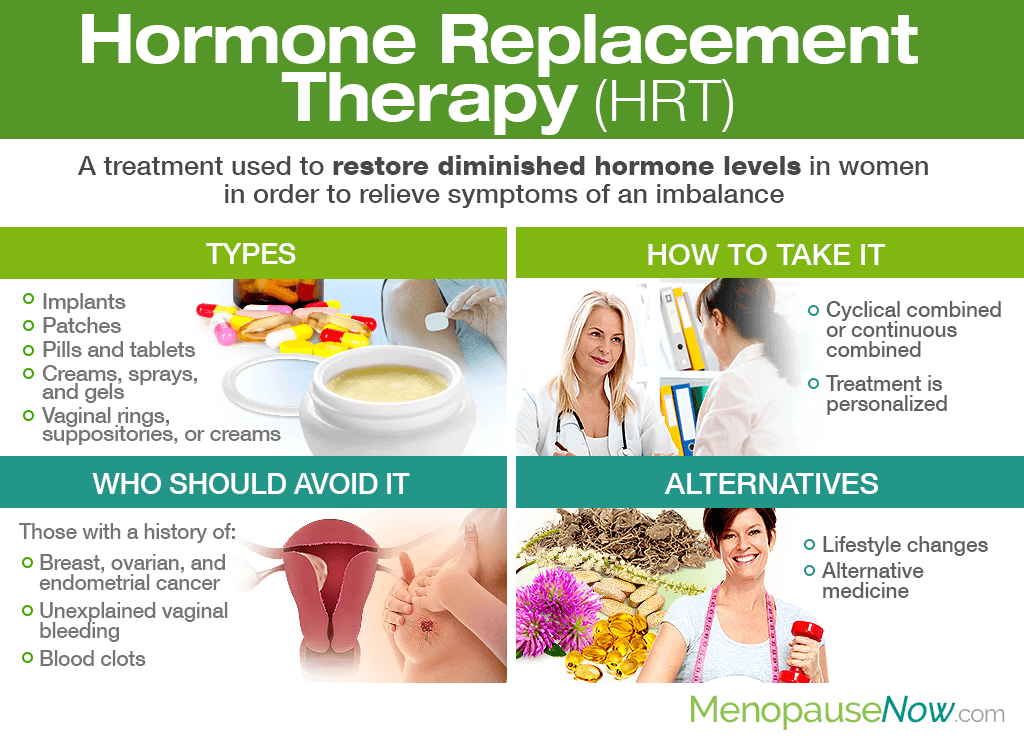Hormone Therapy for Menopause

What is Hormone Therapy?
Hormone therapy involves taking medications that contain estrogen and/or progesterone hormones to supplement the body's declining hormone levels. These hormones can be taken orally, through the skin (transdermal), or vaginally. Hormone therapy can be used alone (estrogen therapy) or in combination with progesterone (combination therapy) for women who still have their uterus.
Types of Hormone Therapy
There are different types of hormone therapy available, including:
- Systemic estrogen therapy - this type of therapy is taken orally or transdermally and can relieve hot flashes, night sweats, and vaginal dryness.
- Low-dose vaginal estrogen therapy - this type of therapy is applied directly to the vagina and can relieve vaginal dryness, itching, burning, and pain during intercourse.
- Progesterone therapy - this type of therapy is used in combination with estrogen therapy to reduce the risk of endometrial cancer.
- Bioidentical hormone therapy - this type of therapy uses hormones that are chemically identical to those produced by the body and can be customized to an individual's needs.
Benefits of Hormone Therapy
Hormone therapy can effectively relieve menopause symptoms and improve a woman's quality of life. It can also reduce the risk of osteoporosis, a condition that causes weak and brittle bones. Hormone therapy may also reduce the risk of colorectal cancer, but this is still under investigation.
Risks of Hormone Therapy
Hormone therapy is not suitable for everyone and may have some risks, including:
- Increased risk of breast cancer - long-term use of estrogen and progestin combination therapy may increase the risk of breast cancer.
- Increased risk of blood clots, stroke, and heart disease - hormone therapy may increase the risk of blood clots, stroke, and heart disease in some women.
- Increased risk of endometrial cancer - estrogen therapy alone may increase the risk of endometrial cancer.
- Side effects - hormone therapy may cause various side effects, such as bloating, breast tenderness, headaches, and nausea.
How to Decide If Hormone Therapy is Right for You?
Deciding whether to use hormone therapy depends on various factors, such as the severity of your menopause symptoms, your overall health, and your personal preferences. It is important to discuss the benefits and risks of hormone therapy with your healthcare provider and consider other non-hormonal treatment options, such as lifestyle changes, herbal remedies, and non-hormonal medications.
FAQ:
1. What are the alternatives to hormone therapy for managing menopause symptoms?
There are various non-hormonal treatment options available for managing menopause symptoms, such as:
- Lifestyle changes - such as exercising regularly, eating a healthy diet, and avoiding triggers that can cause hot flashes.
- Herbal remedies - such as black cohosh, red clover, and soy isoflavones.
- Non-hormonal medications - such as selective serotonin reuptake inhibitors (SSRIs) and gabapentin.
2. How long should I use hormone therapy?
The duration of hormone therapy depends on your individual needs and health risks. Your healthcare provider may recommend using hormone therapy for the shortest time possible to manage your symptoms and monitor your health regularly.
3. Can hormone therapy prevent cognitive decline and Alzheimer's disease?
There is no conclusive evidence that hormone therapy can prevent cognitive decline or Alzheimer's disease. Some studies suggest that hormone therapy may have a protective effect on memory and cognitive function, but more research is needed to confirm these findings.
4. Can hormone therapy improve sexual function?
Hormone therapy can improve sexual function by relieving vaginal dryness, pain, and discomfort during intercourse. However, it may not improve other aspects of sexual function, such as libido and arousal.
Conclusion
Hormone therapy is a treatment option available for managing menopause symptoms, but it may not be suitable for everyone. It is important to discuss the benefits and risks of hormone therapy with your healthcare provider and consider other non-hormonal treatment options. If you decide to use hormone therapy, it is important to use the lowest effective dose for the shortest time possible and monitor your health regularly.
